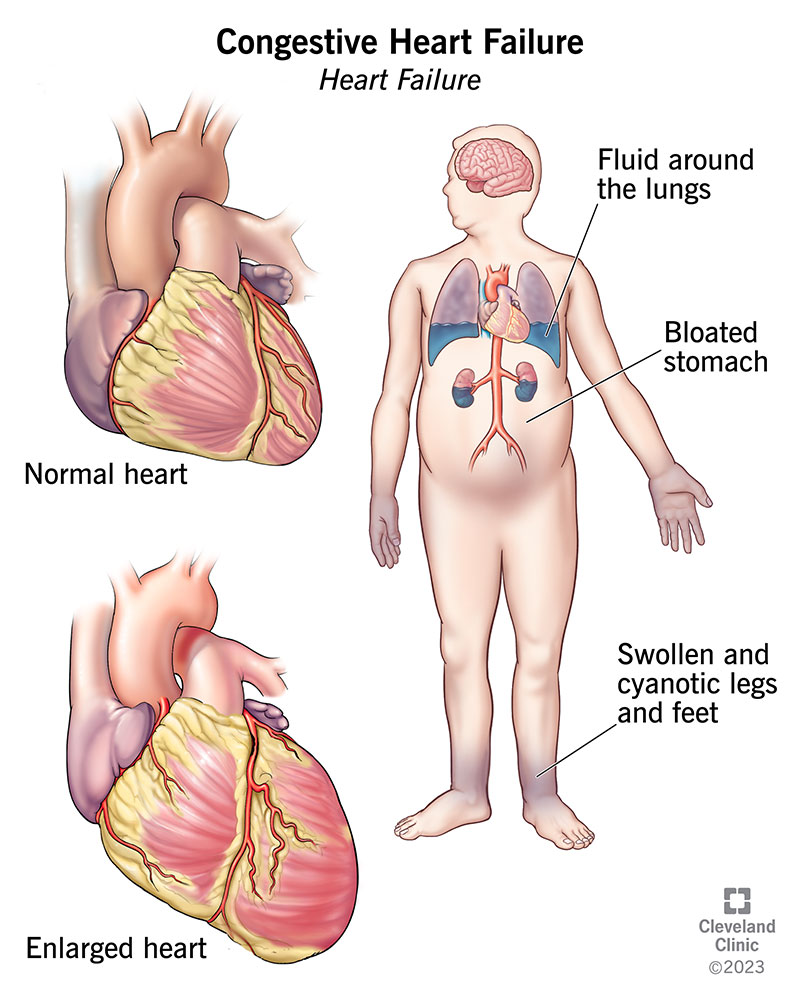Heart failure Information
If you have heart failure, it's important to look after your own health and wellbeing, with support from those involved in your care
This includes having a healthy diet, exercising regularly, stopping smoking and drinking less alcohol and, where needed, taking medication consistently.
Above all, being as informed as possible, often sharing experiences with others and building healthy daily routines makes the biggest difference.
Your Care Plan
Keep well by following your care plan.
What is heart failure
Heart Failure is a long term condition where your heart struggles to pump blood around the body which means the body's needs are not met.
Due to this it may build up fluid in different parts of your body, most of the time, this collects in the lungs, legs and feet.
This video from the British Heart Foundation explains the symptoms and treatment for Heart Failure.
What are the Symptoms of Heart Failure?
Some of the Symptoms of heart failure can include:
- Chest Pain
- Fatigue whilst active
- Shortness of breath throughout the day and waking up with at night
- Swelling in ankles, stomach and legs
- Unexplained weight gain
- A dry cough
- Loss of appetite
- Needing to urinate whilst resting in bed at night
- Palpitations in your heart
- Irregular heart beat
- Fluid in lungs
- Malnutrition
Exercise
Exercising with heart failure can reduce the risk of being hospitalised. Your muscles and lungs will work better decreasing the straing on your heart. Watch the below videos for more information.
General Heart Failure Information
The British Heart Foundation provides information and guidance for patients diagnosed with Heart Failure. Their website contains links to support groups, information on travelling with a heart condition, and guidance for continuing to work after you have been diagnosed.
Last Updated 12/03/2025


